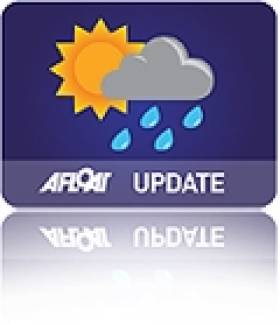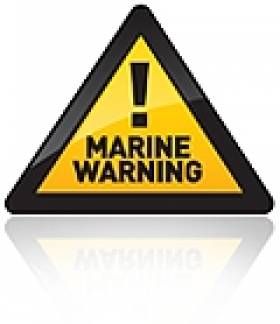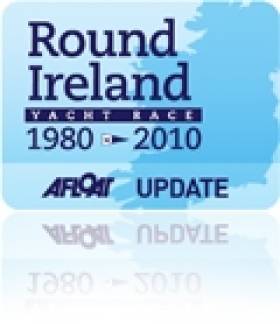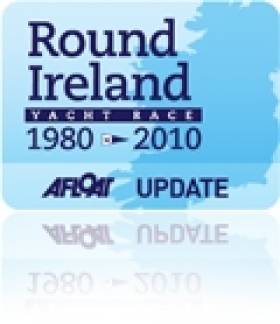Displaying items by tag: Weather
Lunch Time Atlantic Weather Reading Shows Approaching Storm
Coastal Areas Braced for Flood Risk Tonight
A combination of high tides, high winds and low pressure increase the possibility of coastal flooding, particularly at high tide around midnight on Sunday 7 November and midday on Monday 8 November.
A deep low pressure centre is expected to move down across Ireland tonight, clearing away slowly during Monday. This weather system has the potential to bring some severe weather to Ireland. Rainfall totals are likely to reach 25mm - 30mm in places during Sunday and Monday. While not excessive, this rain may lead to some localised flooding on roads. The strongest winds associated with this weather system are likely to be well to the west of Ireland; however if the track of the low pressure is further east than currently expected, then these very strong winds may possibly affect our west coast.
The principal dangers from this weather system will be due to very high seas off the southwest and west coast (waves approaching 9m) and coastal flooding due to a combination of high tides, very low pressure, storm surge and onshore winds. The danger period extends through Sunday night and, for the east coast, much of Monday also. Valid from: 12hrs Sunday Nov 7th To: 06hrs Tuesday Nov 9th.
Householders, property owners, motorists and pedestrians are warned that there is a risk of coastal flooding in Dublin in the next 36 hours according to a Dublin city council update issued last night.
More from Cork City Council HERE
More from Dublin City Council HERE
Podcast: Strong Winds on Wednesday Morning
Up to 30 knot winds will sweep the Round Ireland fleet up the west coast for a time tomorrow morning. This latest wind news (and much more) is in weather guru, Mike Broughton's latest weather observations in the podcast below. The fleet head for the north coast and the second half of Round Ireland 2010 tomorrow, edging closer to Inistrahull, a notorious landmark where many previous races effectively restarted. Tonnerre be warned!
With 48 hours now to the start, Sunday's Round Ireland race is expected to get away in light northerly winds. Weather specialist Mike Broughton predicts winds will go right by Sunday evening off the Wexford coast. Broughton also favours stronger winds, up to 15 knots, offshore from a 030 direction. His analysis for the first 24 hours of the race plus a prediction of some good news for the small boats by Tuesday is on afloat.ie's podcast below.
Afloat.ie has teamed up with specialist sailing forecaster Mike Broughton of Winning Wind.Com to bring you a series of detailed Round Ireland race forecasts. Click back to the home page for regular weather updates from Mike.
More on the Round Ireland Yacht Race:
Round Ireland Yacht Race 2010 Review
Round Ireland Yacht Race, Ireland's top offshore fixture
A Round up of 80 stories on the 2010 Round Ireland Yacht Race
































































